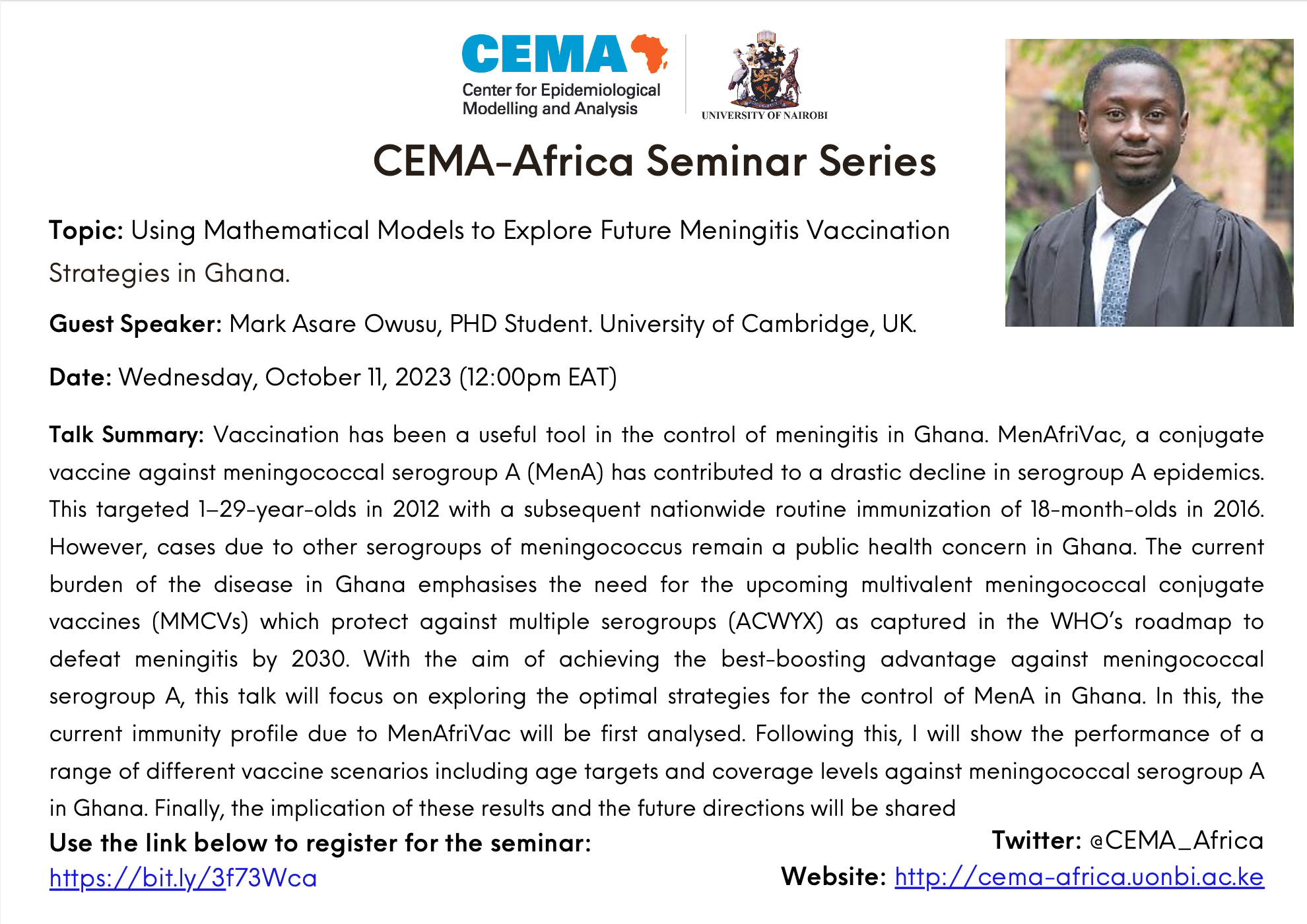Using Mathematical Models to Explore Future Meningitis Vaccination Strategies in Ghana
Vaccination has been a useful tool in the control of meningitis in Ghana. MenAfriVac, a conjugatevaccine against meningococcal serogroup A (MenA) has contributed to a drastic decline in serogroup A epidemics.This targeted 1–29-year-olds in 2012 with a subsequent nationwide routine immunization of 18-month-olds in 2016.However, cases due to other serogroups of meningococcus remain a public health concern in Ghana. The currentburden of the disease in Ghana emphasises the need for the upcoming multivalent meningococcal conjugatevaccines (MMCVs) which protect against multiple serogroups (ACWYX) as captured in the WHO’s roadmap todefeat meningitis by 2030. With the aim of achieving the best-boosting advantage against meningococcalserogroup A, this talk will focus on exploring the optimal strategies for the control of MenA in Ghana. In this, thecurrent immunity profile due to MenAfriVac will be first analysed. Following this, I will show the performance of arange of different vaccine scenarios including age targets and coverage levels against meningococcal serogroup Ain Ghana. Finally, the implication of these results and the future directions will be shared.
Speaker Bio: Mark Asare Owusu is currently a PhD student under the supervision of Professor Caroline Trotter at the University of Cambridge, UK. His work focuses on applying mathematical models to understand the epidemiology of meningitis to inform policy decisions on its control in Ghana. This research is in line with the WHO’s objective to defeat meningitis by 2030. Prior to Mark’s current study in Cambridge, he obtained both an MSc. and a BSc in Mathematics from AIMS-Ghana and the Kwame Nkrumah University of Science and Technology, Ghana respectively.
Use the link below to register for the seminar:


